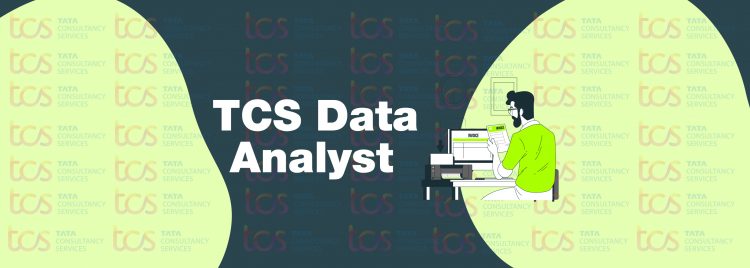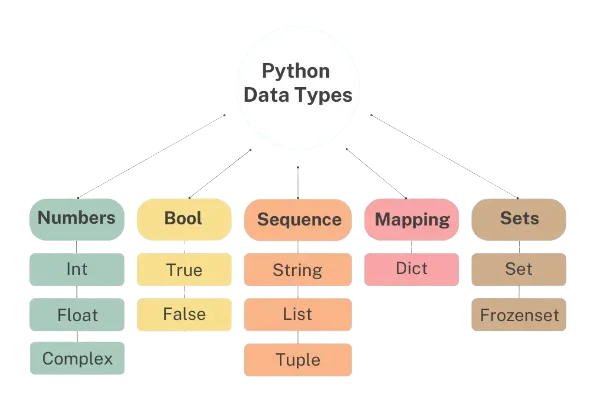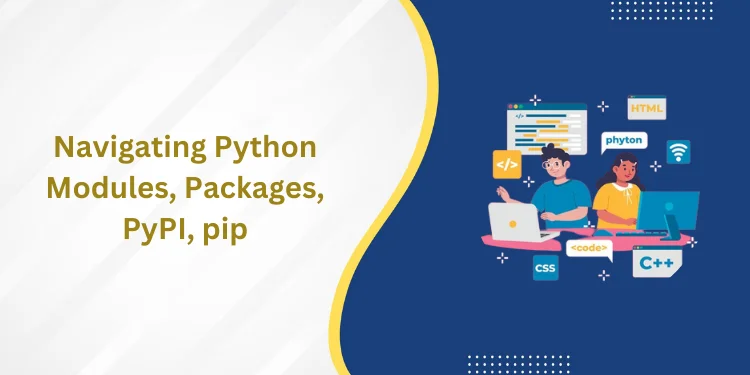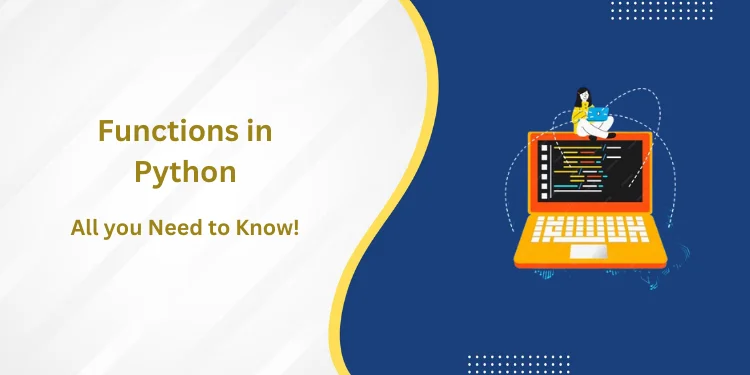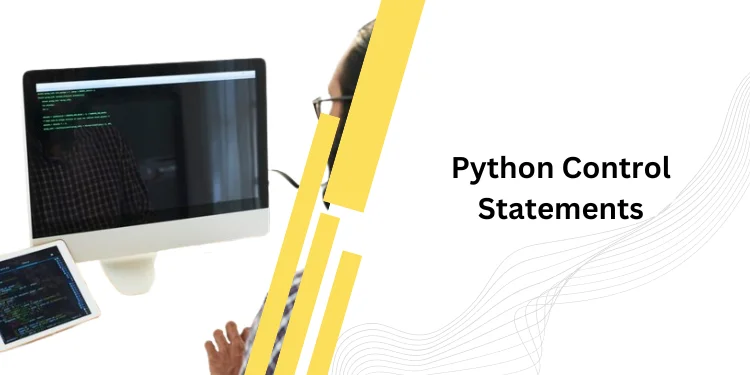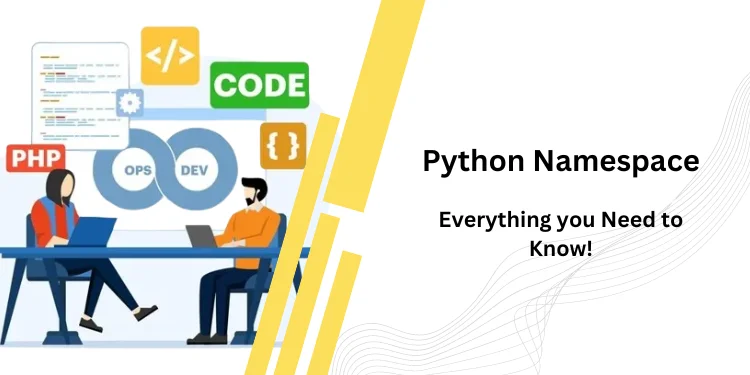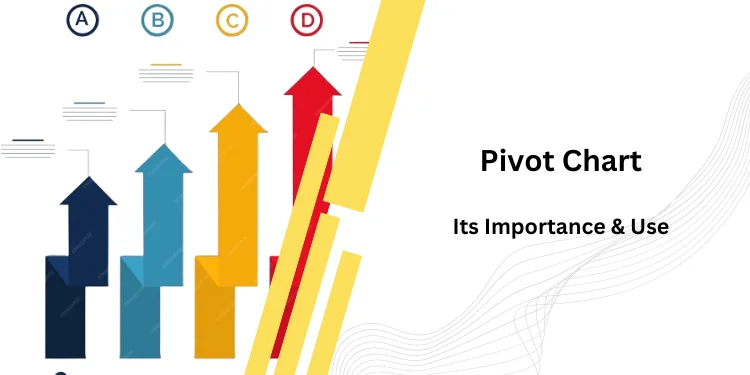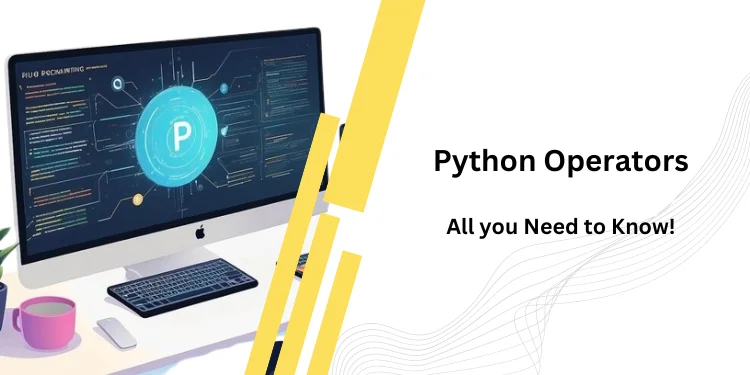Introduction to TCS Data Analyst
From a distance, the phrase “analyze” might refer to analyzing something in order to get meaningful information from it. As a result, data analytics may be described as the process of extracting valuable insights from raw data by examining it. Such insights might include your company’s information, product breakthroughs, market trends, and so on.
Data analytics may be likened to putting together a jigsaw puzzle. The first stage is to collect all of the puzzle pieces and then accurately put them together to create the final image. Similarly, with data analytics, you must examine data gathered from many sources, clean it, and then convert it into knowledge that people can understand.
The information gathered might be organized, semi-structured, or unstructured. The end result may be graphically portrayed as graphs and charts that give exact analytical findings. The analytical process makes use of a number of tools and frameworks.
There is a significant need for people that can assist firms in converting raw data into relevant information, which can then aid in corporate success. There are several professional options in the area of data analytics, and being a data analyst provides the most exciting career prospects.
About TCS
IT firms have grown fast in recent years, notably in India, but only a handful can offer their workers a long-term career. That is why people choose to deal with well-known firms. Being associated with a brand not only provides confidence that you are on the right route in your career, but also helps to assure some kind of job security.
TCS is a brand that people feel can help them progress their careers while also allowing them to maintain a healthy work-life balance.
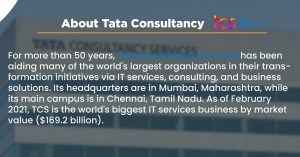
TCS is a subsidiary of the Tata Group, India’s biggest multinational company, and employs over 488,000 world-class consultants across 46 countries.
TCS has been recognized as a Global Top Employer by the Top Employers Institute, one of just eight companies in the world to get this accolade. TCS is able to recruit and develop the best talent by providing comprehensive long-term positions based on a digital learning environment that is accessible anytime, anywhere, and on any device.
Tata Consultancy Services (TCS) achieved annual sales of about 1.64 trillion Indian rupees in its 2021 fiscal year, which is the equivalent of around 22 billion U.S. dollars. The annual revenue of TCS has seen rapid growth in the last seven years: the FY2020 revenue more than doubled that from the FY2013.
Tata Consultancy Services was the most valuable company of the Tata Group in terms of market capitalization as of March 2022. This was valued at over 13 trillion Indian rupees. Titan Company ranked second on the list with around two trillion rupees during the same time period. The conglomerate’s steel and motor businesses followed.
TCS Data Analyst Interview Process
TCS is a great place to start your career and the role of a TCS Data Analyst is even a better prospect. It offers a terrific workplace as well as a friendly environment with a nice ambiance favorable to individual and organizational growth. TCS is known for conducting a yearly mass recruitment process to select candidates for the post of Software Engineer.
This article not only teaches how to respond to pertinent TCS Data Analyst interview questions but also gives a road map for both experienced and fresher applicants to get their dream job at TCS.
TCS Data Analyst NQT Interview Round
TCS NQT (National Qualifier Test) is the first step of the TCS recruitment process, and it is regarded as one of the most difficult parts of the procedure. It is an Ability Test that analyses the abilities and capabilities of a candidate. TCS NQT Exams are available online (at home) as well as in-person at TCS iON Authorised Exam Centers.
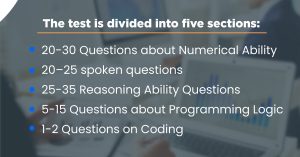
This section assesses numerical ability: Number Systems, Arithmetic, Elementary Statistics, and Data Interpretation.
Verbal Ability: This component evaluates English grammar, use, and reading comprehension.
Reasoning ability: This component evaluates problem-solving, problem-solving, figurative and factual analysis, decision-making, propositional reasoning, and visual-spatial reasoning.
The programming component tests knowledge and skill in the following areas relevant to occupational roles:
Pseudo-code, algorithms, programming structures, the underlying Software Development Life Cycle (SDLC) and its stage-by-stage documentation, and implementation in C, C++, and Java will all be assessed.
Candidates must be competent to code in C, C++, Java, Python, and PERL.
Coding practice with your hands. You will be eligible for the TCS NINJA Technical Interview after passing the NQT Round.
TCS Data Analyst Technical Interview
This is the most difficult stage of the hiring process, so prepare thoroughly. Your technical knowledge, biography, and key projects will be the focus of the entire interview process.
The face-to-face technical round of the TCS interview comprises of questions meant to examine the candidate’s understanding of data structures and algorithms, database management systems, operating systems, networking, object-oriented programming ideas, and a programming language of your choosing. There’s a good chance you’ll be asked to write code on paper.
TCS Data Analyst Managerial Interview Round
A panel of senior members manages the managerial round. This phase also includes a face-to-face interview. This round could be fully technical or a mix of technical and managerial questions. The majority of the TCS interview questions are specific to Data Analysts. You should be knowledgeable about any new technology or software that may be required for that position.
In order to measure your thinking style, you may also be asked questions based on your behaviors. You may be put under duress to see how you respond. Your achievements on your CV may be questioned, and you may be required to defend them. You may be asked about your previous job experience, goals, and motivations for joining TCS, among other things.
During this round, the panel will evaluate your corporate culture fit, attitude, soft skills, intended career growth, and other aspects.
You may also be asked general questions about your work experience, college degree, specialization, willingness to relocate, and other factors. In any case, no matter whatever path the interview takes, always be courteous.
The interview panel’s goal is to push you out of your comfort zone. Maintain your cool and respond to the TCS interview questions you know the answers to. Don’t give up if the answer is unknown; instead, attempt it with what you know.
TCS Data Analyst HR round of Interviews
Expect inquiries on your work experience, education, interests, and family history, in addition to the normal HR questions about your strengths and weaknesses, reasons for applying to the company, why you should be hired, and so on. They can also inquire about TCS’s formation, objectives, values, organizational structure, and so forth.
Most candidates assume that the HR interview is straightforward, but keep in mind that a poor HR interview can endanger your chances of landing the job, regardless of having cleared all other hurdles (aptit
ude test, technical round, etc.). The idea is to keep a friendly and confident demeanor. Remember to smile throughout interviews, which can be long and tedious.
This is the final step in the hiring procedure. Candidates should be adaptive, but this stage allows for discussion.
TCS Data Analyst Interview Questions
TCS NQT Questions
What is BFS?
The algorithm for searching a tree data structure for a node that satisfies a given property is known as breadth-first search. It begins at the tree root and proceeds to all of the tree nodes at the current depth level before moving on to the nodes at the next depth level. The extra memory, usually in the form of a queue, is required to keep track of the child nodes that have been encountered but not investigated.
What is JDK?
Oracle Corporation’s Java Development Kit is a Java Technology distribution. It provides the Standard Edition of the Java Application Programming Interface by implementing the Java Language Specification and the Java Virtual Machine Specification.
How to split strings in Java?
public class DTT {
public static void main(String args[])
{
String str = “DataTrained”;
String[] arrOfStr = str.split(“e”, 2);
for (String a : arrOfStr)
System.out.println(a);
}
}
What is JVM?
The Java Virtual Machine (JVM) is a virtual machine that allows computers to run Java programmes as well as programmes written in other languages that have been compiled to Java bytecode. A specification that formally describes what is required in a JVM implementation is used to describe the JVM. Having a specification ensures that Java programmes work across different implementations, so programmers using the Java Development Kit don’t have to worry about the underlying hardware platform’s quirks.
Explain the various types of Python operators.
The following are examples of python operations:
- Arithmetic Operators
- Relational Operators
- Assignment Operators
- Logical Operators
- Membership Operators
- Identity Operators
- Bitwise Operators
Technical TCS Interview Questions
Joseph is learning digital logic subject which will be for his next semester. He usually tries to solve unit assignment problems before the lecture. Today he got one tricky question. The problem statement is “A positive integer has been given as an input. Convert decimal value to binary representation. Toggle all bits of it after the most significant bit including the most significant bit. Print the positive integer value after toggling all bits”.
Constraints : 1<=N<=100
Example 1 – Input : 10 -> Integer
Output : 5 -> result- Integer
Solution in C:
#include
using namespace std;
int main()
{
int n; cin>>n;
int k=(1<<(int)floor(log2(n))+1)-1;
cout<<(n^k);
}
Solution in Python:
import math
n=int(input())
k=(1<int(math.log2(n))+1)-1
print(n^k)
Given an array Arr[] of size T, contains binary digits, where
0 represents a biker running to the north.
1 represents a biker running to the south.
The task is to count crossing biker in such a way that each pair of crossing biker(N, S), where 0<=N<S<T, is passing when N is running to the north and S is running to the south.
Constraints: 0<=N<S<T
Example 1- Input :
5 -> Number of elements i.e. T
0 -> Value of 1st element.
1 -> Value of 2nd element
0 -> Value of 3rd element.
1 -> Value of 4th element.
1 -> Value of 5th element
Output : 5
Solution in Python:
n = int (input ())
L =[]
sum = 0
c = 0
for _ in range (n):
a = (input ())
if a:
sum += c
else:
c += 1
print (sum)
Suppose there is an array that has values [0,1,2,3,4,5,6,7,8,9]. How will you display the following values from the array – [1,3,5,7,9]?
Import numpy as np
arr = np.arange(10)
arr
array([0,1,2,3,4,5,6,7,8,9)
Since we only want the odd number from 0 to 9, you can perform the modulus operation and check if the remainder is equal to 1.
arr[arr % 2 == 1]
array([1,3,5,7,9])
Managerial TCS Interview Questions
What role do you play in a team?
This inquiry may be asked by the recruiting manager to see if you are a suitable match for their team. Another incentive may be to understand more about yourself, particularly whether or not you consider yourself a leader. You may respond to this question by demonstrating your leadership and collaborative abilities.
What steps do you take if you make a mistake?
Employers might use this question to examine how you take responsibility and overcome obstacles in your workflow. Give an example of how you managed a mistake in the workplace, including the steps you followed to fix an issue and the outcomes that resulted from your problem-solving.
What are some of your proudest working achievements?
Managers ask questions like these to determine how you define success. It also gives useful information about your motivations. Consider all of your working triumphs, such as useful projects, awards, or promotions, and answer the question honestly.
How do you handle workplace disagreements?
Hiring managers ask this question to assess whether you recognize the possibility of conflict and have a particular method to dispute resolution that does not include management. When answering this question, you may provide examples of how you have resolved problems in the past.
What will you do if your team is opposed to your idea?
Hiring managers may ask you this question to learn how you deal with workplace opposition. This might be another opportunity for them to learn more about how you handle difficult circumstances with colleagues. You might describe the tactics you use to communicate with your team in this sort of circumstance while answering this question.
HR Round TCS Data Analyst Interview Questions
Tell me a little bit about yourself.
(If you are a beginner, begin with your academics, projects, achievements, other curriculum activities, and strengths. Also, tell them about your interests and background. If you’re a seasoned professional, begin with your current position, achievements, and previous work history, followed by academic and personal details.)
Why do you want to work in the information technology field?
What drew you to TCS?
Do you want to move around India?
What makes you want to change jobs?
(This is a common inquiry if you are an experienced professional looking for a change. The simplest way to answer this question is to say that you’re leaving your current job to advance your career. Make certain that you do not criticize or speak negatively about your new employer.)
What is your anticipated pay?
(This is a tricky question. It is typically requested of senior staff. You might inquire about the company’s average employee raise.)
Skills, Requirements, and Salary
On a large dataset, a TCS data analyst collects, processes, and performs statistical analy
ses. They learn how to use data to find answers to questions and solve problems. Data analysis has evolved as a result of the advancement of computers and an ever-increasing move toward technological intertwinement.
The development of the relational database breathed new life into a TCS data analyst position, allowing them to retrieve data from databases using SQL (pronounced “sequel” or “s-q-l”).
Job Description- TCS Data Analyst
The majority of data analytics jobs entail collecting and cleaning data in order to uncover trends and business insights. The day-to-day duties of a TCS data analyst vary depending on the industry, company, or type of data analytics you specialize in.
Using business intelligence software, Tableau, and programming, a TCS data analyst may be responsible for creating dashboards and designing, and maintaining relationship databases and systems for various departments throughout their organization.
To determine organizational goals, most TCS data analyst jobs require collaboration with IT teams, management, and/or data scientists. They collect and clean data from primary and secondary sources, then use standard statistical tools and techniques to analyze and interpret the results.
In most cases, they identify new opportunities for process improvement by identifying trends, correlations, and patterns in complex data sets. A TCS Data analyst must also write reports on their findings and inform key stakeholders about the next steps.
You can check out these TCS Data Analyst jobs on LinkedIn so you get a good idea about what requirements or skills TCS looks for, from a candidate in a job listing:
- Data Analyst, TCS, New York
- Data Analyst, TCS, Mexico City
- Entry Level Data Analyst, TCS, Dallas
- Graduate Data Analyst, TCS, England
- Data Analytics-Druid, TCS, India
Skills- TCS Data Analyst
- Programming Languages (R/SAS): A TCS Data analyst should be fluent in at least one programming language and have a working understanding of a few others. For data collection, data cleaning, statistical analysis, and data visualization, analysts use programming languages like R and SAS.
- Curiosity and creativity: are two qualities that a good TCS data analyst should possess. It’s crucial to have a solid understanding of statistical methods, but it’s even more important to approach problems with a creative and analytical mindset. This will assist the analyst in generating intriguing research questions that will improve a company’s understanding of the subject.
- Strong and Effective Communication: Whether communicating with a readership or a small group of executives making business decisions, a TCS data analyst must clearly communicate their findings. Success hinges on effective communication.
- Data Visualization: It takes a lot of trial and error to create effective data visualization. A good TCS data analyst knows which graphs to use, how to scale visualizations, and which charts to use depending on their target audience.
- Back-end data warehousing: is where some TCS data analyst work. They use querying languages to find and manage data by connecting databases from various sources to create a data warehouse.
- Database Querying Languages: SQL is the most common querying language used by TCS data analyst, with many variations such as PostreSQL, T-SQL, and PL/SQL (Procedural Language/SQL).
When data isn’t neatly stored in a database, a TCS data analyst must rely on other tools to collect unstructured data. They clean and process the data after they have a sufficient amount.
- Advanced Microsoft Excel: A TCS Data analyst should be comfortable with the spreadsheet program and be familiar with advanced modeling and analytics techniques.
- A TCS Data analyst with machine learning skills is extremely valuable, despite the fact that machine learning is not a required skill for most TCS data analyst positions.
Responsibilities of TCS Data Analyst
The day-to-day activities of TCS data analyst are determined by where they work and the tools they use. Some TCS data analysts prefer statistical software and Excel to programming languages.
Some analysts perform regression analysis or create data visualizations, depending on the problems they’re trying to solve. “Junior data scientists” or “data scientists in training” are terms used to describe experienced TCS data analysts.
In some cases, a TCS data analyst/scientist might spend the morning writing queries or responding to standard requests and the afternoon developing custom solutions or experimenting with relational databases, Hadoop, or NoSQL.
Tools Required
Here are a few more useful tools that a TCS data analyst may use on the job:
- Google Analytics (GA): GA is a tool that helps analysts understand customer data, such as trends and areas of customer experience that could be improved on landing pages or calls to action (CTAs)
- Tableau is a data aggregation and analysis tool used by analysts. They can create dashboards and share them with other team members, as well as create visualizations.
- System for Jupyter Notebooks: A TCS Data analyst can quickly test code using Jupiter notebooks. Because of the markdown feature, non-technical people prefer the simple design of jupyter notebooks.
- Github is a website that allows you to share and collaborate on technical projects. For a TCS data analyst who uses object-oriented programming, this is a must-have.
- S3 on AWS: AWS S3 is a cloud storage service provided by Amazon Web Services. It can be used by TCS data analyst to store and retrieve large datasets.
TCS Data Analyst Salary
TCS salary for freshers in India ranges from 4.1 Lakhs per year for a Data Analyst, for individuals with less than one year of experience to 4.1 Lakhs per year for people with five years of experience. TCS salary for freshers varies from 2.4 Lakhs to 7.3 Lakhs per year. Salary estimates are based on 26 salaries provided by TCS employees.
The average TCS Senior Data Analyst pay in India is 6 lakhs per year for professionals with 3 to 10 years of experience. TCS’s Senior Data Analyst compensation varies from 2.9 Lakhs to 11.2 Lakhs per year. Salary estimates are based on 111 salaries provided by TCS employees.
Conclusion
Finding a good job requires a lot of work and commitment. A little forethought might greatly inc
rease your chances of making it to the TCS interview stage. But, trust me, it’s definitely worth it!
- “Self Confidence” is the first stage in nailing TCS interview questions. You have already done half of the assignment if you are confident enough. Maintain a good mood and a grin at all times.
- Study your technical topics extensively, and practice answering common HR and management TCS interview questions. Above all, keep calm and confident, and you’ll have a good chance of surviving.
- Check out the company’s website. Learn about the services and product lines that the organization offers, as well as its goal and philosophy. Employers anticipate that you will grasp who the firm is, what it does, and how it fits into your career goals. These sorts of inquiries about the firm might be asked during the HR round.
- Your academic projects and mini-projects will have a considerable impact on your technical TCS interview. Regardless of your technical job, master the foundations of the programming language.
- Make Your Resume Stand Out. Employers will only evaluate resumes and cover letters that are devoid of errors in structure, grammar, and spelling. Resumes should be tailored to the specific post for which you have applied, emphasizing relevant work experience and academic qualifications.
- Remember to study the fundamental algorithms for the Fibonacci sequence, sorting, the Armstrong Number, prime, palindrome, even, odd, and factorial programs.
- Answers should be SHORT. Use no more word arts to explain the core answer. Don’t spend time offering irrelevant replies or asking irrelevant inquiries. Any interviewer who observes you do this will automatically deduct points from your score.
Frequently Asked Questions
Does TCS have a data analyst role?
Yes, TCS does have the role of TCS Data Analyst. Data and Analytics services are provided by TCS in the following areas: They assist companies in creating, managing, and disseminating data for all applications and processes. They make sure that our data management is compliant with the law. Master and metadata management are also included in their services.
What is the work of a TCS Data Analyst?
A TCS data analyst gathers information on specific topics by analyzing data. This usually begins with the survey process, in which data analysts identify survey participants and collect the required data. The information is then interpreted and presented in charts and reports.
How much does TCS Data Analyst earn?
The annual TCS salary for a TCS Data Analyst is $442,891. Tata Consultancy Services pays Data Analysts between $1,02,634 and $53,35,488 per year. This estimate is based on 416 TCS salary reports submitted anonymously by TCS Data Analyst employees or estimated based on statistical methods. When bonuses and other forms of compensation are taken into account, a Data Analyst at Tata Consultancy Services can expect to earn a total compensation of $449,283 per year.
What is the qualification for a TCS Data Analyst?
To work as a TCS data analyst, you must first obtain a Bachelor’s degree, which is required for the majority of entry-level positions. Finance, Economics, Mathematics, Statistics, Computer Science, and Information Management are all relevant disciplines.
What Should I Study in Order to Work as a TCS Data Analyst?
Data analysts use a variety of tools on a daily basis. Business intelligence software is used by some data analysts. Others may use statistical and visualization libraries in programming languages and tools such as Python, R, Excel, and Tableau. Other capabilities include:
- Creative and analytical thinking
- Communication
- Database querying
- Data mining
- Data cleaning
Is Coding Required to be a TCS Data Analyst?
Some data analysts are proficient in programming languages, while others may analyze data and provide insights using analytics software or Excel. Whether or not a data analyst needs to code is usually determined by the job or the employer. Programming may or may not be listed as a required skill for data analysts in job descriptions. Before applying, take a look at the job description and think about your qualifications.
Is Being a Data Analyst a Good Career?
If you’re debating whether to become a data analyst or a data scientist, both jobs are expected to grow faster than the average. According to O*NET OnLine (O*NET), data analysts have a promising future. Between 2020 and 2030, data analysts are expected to grow by 15%. Salary for data analysts is typically determined by where they work and the industry in which they work. In 2020, data analysts earned an average annual salary of $98,230, according to O*NET.

